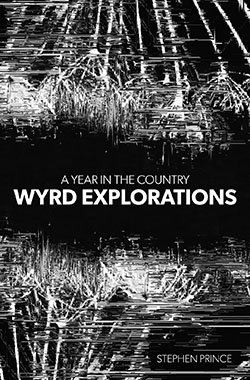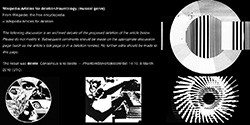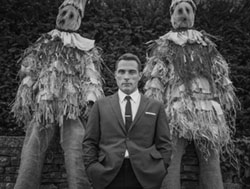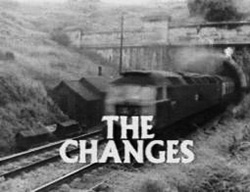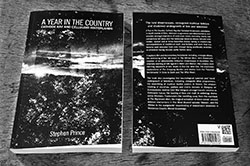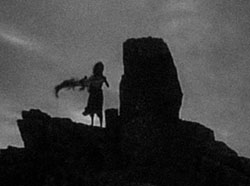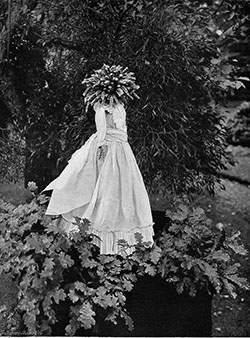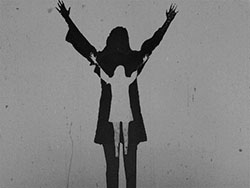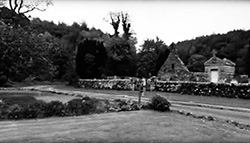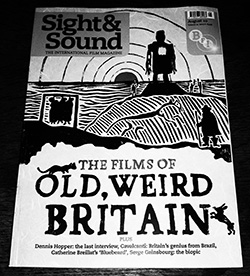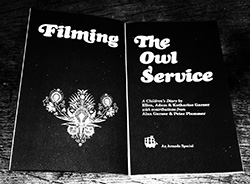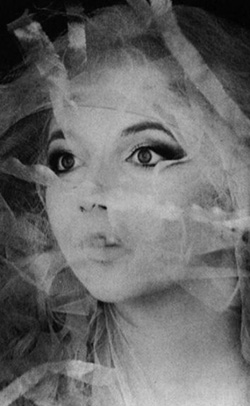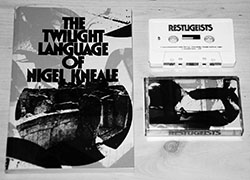
File Under: Trails And Influences / Year 2 wanderings
Now, I’m wary of sounding like an old curmudgeon, waving my stick around and saying “It was all once fields around these parts and you could tell what they were singing about and that about wasn’t just always boys, girls and going out” but casting my mind back there seems to be a very particular corner of pop music that once dealt quite specifically with Cold War apocalypse / dread.
This wasn’t niche music – these were records that would reach at least the top twenty of the UK pop charts, maybe even become the toppermost of the poppermost and be the number one selling records of their time (generally around 1980-ish to the mid-eighties).
Also, this was at a time when doing so meant they were a large part of the national conversation / consciousness and may well mean selling hundreds of thousands or more of physical singles.
There are more but to mention just a few:
Nena’s 99 Red Balloons, The Pirahnas Tom Hark and spoiler alert for if you think it’s a nice, slightly melancholic pop song (as did I until I found out differently relatively recently) – Strawberry Switchblade’s Since Yesterday.
Then there’s Ultravox’s Dancing With Tears In My Eyes (essentially a song based on a book about deciding how you will live through the end via wind carried fallout in a country that has avoided the main attack), OMD’s Enola Gay and something of a surprise for a pop poppet – Nik Kershaw’s I Won’t Let The Sun Go Down On Me.
I could well also include Jona Lewie’s Stop The Cavalry – which while it is more a general anti-war song, also seems to imply some kind of time schism in its mixing of references to early twentieth century and Cold War conflicts…
…and possibly even Blondie’s Atomic, which although its lyrics are minimal and almost abstract, with its sense of dramatic dread (and glamour) and the accompanying post-apocalyptic-disco video / mushroom cloud single cover, I think it may well belong amongst this corner of pop music.
And possibly the chart success daddy of them all (in the UK at least) Frankie Goes To Hollywood’s Two Tribes.
Now, as I say these were hardly niche pop songs. Here are a few UK peak chart positions:
99 Red Ballons – No.1. Tom Hark – No.6. Since Yesterday – No.5. Dancing With Tears In My Eyes – No.3. Enola Gay – No.8. I Won’t Let The Sun Go Down On Me – No.2. Stop The Cavalry – No.3. Atomic – No. 1. Two Tribes – No.1 (for nine weeks indeed).
Even something like Kate Bush’s Breathing, which I think of as a hit but it didn’t reach the then all important Top 40, peaking at No. 48, seems to linger in pop memory and the album it was on went to number 1.
The background to all this was one of the heightened points of the Cold War and international defence policy that seemed to “subscribe to the point of view that the more dangerous we make the world, the safer we are“.
That quote is from a fascinating documentary which is part of a series called Trailblazers:
“Narrated by Noddy Holder, this eye-opening series examines the key moments that have shaped musical history, starting with a look at the origins of disco music.”
There is one episode that focuses on the above loose gathering of chart topping protest pop, something of a surprising cuckoo in the nest amongst the more obvious looks at say disco, funk, punk and goth (the last worth watching in part to hear Mr Noddy Holder say in his inimitable manner “Goth, not me guv” and describing Madchester related bands when signalling the end of mainstream goth popularity as “Baggy panted vampire hunters”).
Although the description of the episode talks about the evolution of such protest songs “…from western swing and country to gospel, jazz and rockabilly“, actually it largely focuses on the early to mid-eighties of chart pop.
One of the most fascinating sections is where Frankie Goes To Hollywood producer Trevor Horn talks about the Protect And Survive public defence instruction voiceover parts on that just mentioned daddy of them all, Two Tribes.
Apparently it went something like this:
Paul Morley – sort of the philosophiser/organiser/provocateur behind ZTT, who were FGTH’s label, which was co-owned by Trevor Horn – had a bootleg of Protect And Survive information films, which at the time were classified (before they were, you know, freely available on popular commercial internet video channels or to buy on DVD).
Rather than steal / sample the voiceovers from them, they hired Patrick Allen who had done them for the actual government broadcasts (at the time his was a nationally known, possibly intended to be reassuring voice, as he also did well known television commercials such as for Barratt Homes).
It cost them about £1000 (which seems cheap now) but when they showed him what he was to read, he said “I don’t think I can do this. Where have you got this from? You know I had to sign the Official Secrets Act before I did this?”
And then apparently he went “F*** it, I’m going to do it. You know you missed a few bits out. There was one bit that particularly upset me…”
(That bit, if you should wish to know, concerned disposals. I shall say no more.)
It’s strange to think and write about all this as it seems such a million miles away from popular music entertainment and its concerns today and although in a way all such things could really say was…
“When two tribes go to war, a point is all you can score“…
…well, at least it was being said – and was part of a wider sense of the then alive and well functioning of the “…circuit between the experimental, the avant-garde and the popular” (to quote myself quoting Mr Mark Fisher).
I think I shall leave the last word to program participant Billy Bragg: he says about when in recent times he was listening to The Smiths Ask single (more a large scale cult rock band release but it still peaked at No.14) in the car with his teenage son and when the lyric went “Because if it’s not love, then it’s the bomb, the bomb, the bomb, the bomb, the bomb, the bomb, the bomb that will bring us together“, his teenage son asked “What bomb?“.
Mr Braggs response was he thought “plus ça change“.
More information on the episode of Trailblazers here. Peruse “The Official Charts” (I feel that should be in bold with stars) here. The more now-an-archiving-than-chart-topping home of ZTT in the ether here. A considerable number of other such related popsongs and not-so-popsongs can be found here.





